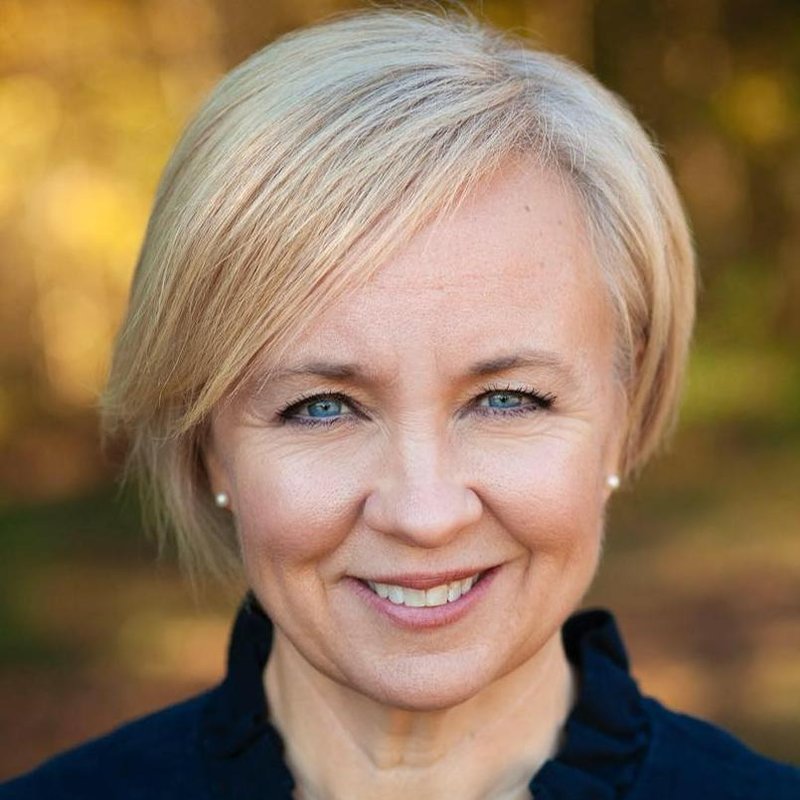Interviews
More than just meetings? Zoom scales ambitions in telehealth
At the HIMSS 2023 global healthcare conference, Medical Device Network met with Zoom’s Head of Healthcare Heidi West to discuss the company’s new collaboration with Oracle Health. By Catherine Longworth.

Heidi West – Head of Healthcare, Zoom
Z oom may now be synonymous with video conferencing, but the software company is eyeing up its presence in one major growth market – telemedicine. A new partnership with electronic health record (EHR) company Oracle Health is one of many strategic collaborations the company is lining up to build a presence in the virtual care world. At the ongoing HIMSS 2023 global healthcare conference in Chicago, Zoom’s Head of Healthcare Heidi West met with Medical Device Network to discuss the company’s evolving telehealth strategy.
Competitors such as Google, and Microsoft, have been developing partnerships and solutions in the healthcare space for some time, but over the last couple of years efforts have intensified. Moreover, the Covid-19 pandemic is driving an increased adoption rate of technology in the healthcare space overall.
Zoom’s partnership with Oracle Cerner Millennium, a part of Oracle, will allow healthcare providers around the world to join patient appointments and simultaneously access relevant patient EHRs. According to the companies, the connected system will provide an efficient workflow for clinicians to record updates on a patient’s EHR and save time that can be invested back into patient care.
Catherine Longworth: As a business, how is Zoom approaching the telehealth market?
Heidi West: During the pandemic, we were laser focused on helping our clients and their patients have access to doctors through telehealth using our Meetings platform. Since then, we’ve introduced a lot of other products and we now have an entire unified communications platform. The good news is people know who Zoom is, but they know us for those meetings. So, a lot of our efforts have been to expand our portfolio and the presence we serve within healthcare across all our products.
Another area that we are putting a lot of focus and attention on is building out our ecosystem and determining what a partnership strategy looks like long term, beyond just integrating with an EHR. Integration has a lot more to do with how we’re solving real problems for our customers, so our ecosystem of partners has expanded greatly over the last two and a half years. Then the other piece is just continuing to be consultative and connected to our clients to listen, learn and apply.
Catherine Longworth: What are some of the problems that you’re hearing from customers that need to be solved?
Heidi West: I think the obvious one is the ‘Great Resignation’; losing nurses and doctors and determining how to do more with less, and where there might be self-service opportunities or a way to centralise needs so nurses can focus on what they’re there to do.
We announced a Zoom virtual assistant that is like a digital front door in healthcare. This can be where a lot of the artificial intelligence (AI) pulls in information for intake and brings you into the meeting so it can be more meaningful. We also have our video-enabled Zoom Contact Centre for which the applications in healthcare are limitless. If you have a medical device at home and you’re struggling to get it to work, you call the tech centre and it could route you to a specialist who could then elevate the call to video and help you with the product right there when you’re with them.

Credit: Getty images
There’s also a lot of work going on in understanding how the products solve different issues. There are a lot of silos and communication in healthcare. We’ve been doing virtual rounds with some of our clients and meeting with a lot of the different specialties within hospitals. We are asking what’s their primary and secondary means of engagement and then what do they refer to when all else fails?
The other part is how can we weave a communication strategy throughout the entire health system that is connected, familiar and has a ubiquitous look and feel throughout. That’s really where our emphasis is, while also recognizing we can’t solve the entire problem ourselves yet. This is where the partnerships come in.
One of the partners we’re working with is Vibe Health, where now you can speak through the pillow speaker. We’re working with partners that have the bars on the top with shutter screens to create privacy for patients, so it’s not just throwing a Zoom Room into a patient room – it’s what that solution look like for the patients; providers and the different people who need to engage with that patient during their stay, whether that’s family, virtual rounds, nursing, or telesitting.
We have a product called Zoom Rooms and we realise the potential for Zoom Rooms and a patient room, but to just put a Zoom Room and some hardware doesn’t necessarily get what we want to get out of it. So, we’ve started working with the infotainment systems and being integrated into the infotainment systems.
Catherine Longworth: Why is Oracle a good partner for Zoom?
Heidi West: Oracle has that virtual component and an ability to see the holistic view of a patient, so I think that is where things become interesting. We’re just at the beginning of our partnership with Oracle, but the intent is to truly build a new delivery of health where Oracle is serving in the world patients live in, but we’re the communication platform to put it all together.
Catherine Longworth: What is the partnership planning to do differently than what other technology competitors may be looking at in this space?
Heidi West: I think because of Oracle’s understanding of the back office, their insights allow for a different strategic lens in the way we may do patient engagement. I’m not saying that Zoom is going to change the direction of Oracle Health or the other way around. I think it’s a matter of us listening to our customers and recognising the potential and value of Oracle’s footprint and the understanding they have.
Oracle shared an intent of being a player in the healthcare space when they acquired Cerner. We were working together prior to the acquisition of Cerner, and they kept saying we’re going to have our own EHR system and I thought, that’s a pretty lofty goal! But when they acquired Cerner, the pieces began to fit. If you think about bedside communication and all the things that Cerner does that need a communication component, whether it is phone rooms or contact centres or something else- there are so many opportunities. So, I feel the potential for collaboration is limitless.
Catherine Longworth: How are you addressing rising concerns people have about data privacy?
Heidi West: Well, for Zoom in particular, we have all the responsibilities around Health Insurance Portability and Accountability Act (HIPAA) and data privacy. We do not store data or record without patient consent. The security and privacy of our patients is at the forefront of everything we do. That’s not a healthcare thing – that’s a Zoom thing. We also don’t own the data; we are just where the communication happens.
Catherine Longworth: What are Zoom’s business milestones in healthcare in 2023?
Heidi West: We’re really focusing on some strategic partnerships, Oracle being an example of how we are looking to expand our footprint and clinical environments around phone and contact centers. There’s a lot of energy around both of those products for us. Phone is outselling Meetings for us, so it’s a big product for us as an organisation. But then it’s a matter of how we don’t want to just sell you a phone – I want to sell you a phone that is a solution for a communication gap within your environment. I believe Zoom will be successful without partnerships, but we are more meaningful with them.
Catherine Longworth: Are you seeing more brand recognition from healthcare providers?
Heidi West: A lot of our efforts is asking people to take a fresh look at Zoom and recognise we are more than just meetings, and we’re making some progress there. The work we’re doing is all about elevating what communication can look like in a clinical environment. We’re committed to this space and a lot of people worry that if you’re a communication vendor, what can we know about healthcare? But we have an entire business focused on this and dedicated to the market so yes, I want people to know how focused we are on the healthcare industry!